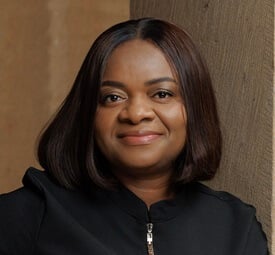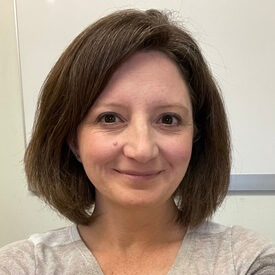ARVO Foundation Research Catalyst Awards
The ARVO Foundation Research Catalyst Awards are intended for investigators beginning their careers or returning to the workforce after an extended leave. The goal of this award is to support an initial research project for an investigator with a superb research idea. The award was established in 2023 and is generously funded by the ARVO Foundation.
One research award of $70,000 will be awarded each year. Research projects must be completed within two years.
Eligibility
Specific eligibility criteria include:
- Applicant must be either, (A) an investigator within the first three years of their primary academic appointment, or (B) an investigator who is returning to the workforce after at least a year away from an active research career.
- Applicant must identify a mentor or senior colleague that will be involved in the project to ensure a level of success.
- Applicant must not have an active NIH R-series grant or equivalent.
- Applicants may only submit one application per cycle. Award recipients must wait three years to apply with a new proposal. Unsuccessful applicants may reapply in the next cycle.
- ARVO and ARVO Foundation Officers, Board members and ARVO Foundation Awards Committee members are not eligible to apply for or be nominated for an award nor may they supply letters of support during their terms.
Application process
Applications are accepted via online application. The online form must be completed by the applicant. The online application requires the following information, forms and documents:
- Applicant Information: Complete all required fields. Please include a biosketch when applying.
- Mentor Information: Enter information on the mentor you will be consulting with on this project.
- Project Information:
- Title of Project
- Goal: Statement of expected project outcome(s); include a statement of how results could lead to clinical impacts and/or subsequent research funding.
- Project significance
- Design/methodology
- Research Capacity Assessment: Include a statement that you will have permission from the institution(s) to allot the required time and resources to execute the project.
- Project Timeline: The project period must commence within six months of notification of the award and be completed within two years of the start date.
- Budget: an itemized budget must be included. Awarded funds may not be used for institutional overhead or administrative fees.
- Title of Project
- Explain how you will use any existing infrastructure available to you to ensure the project will succeed.
- Describe your relationship with the identified mentor or senior colleague. What involvement will that person have in the project and/or your development?
- Two letters of recommendation: one from within institution; one external (either may be from the identified mentor/colleague), letters should not exceed one page.
- Letter from institution that it will accept funds for use as described in criteria, that the institution is tax-exempt, and agrees not to apply or withhold administrative or indirect fees.
- Affirmations: Applicant must review the linked documents and affirm compliance with:
- ARVO Statement for the Use of Animals in Ophthalmic and Visual Research
- ARVO Statement on Registering Clinical Trials
- Accredited Institutional Review Board (IRB) or its equivalent (such as a human ethics committee), if applicable
- Additional Information
- A final research report and final accounting of award funds is due within thirty (30) days of the end of the project.
Review and selection process
Applications are reviewed by the ARVO Foundation Awards Committee comprised of internationally recognized experts. The deliberations of the Foundation Awards Committee are confidential and their decision is final.
Timeline
Applications open on Aug. 1
Applications close on Oct. 1 (11:59pm U.S. Eastern time)
Recipients notified in December
2025 recipients

Ngozi Chidi-Egboka, OD, MPH, PhD
Save Sight Institute, Sydney Medical School
The University of Sydney
Australia
Ngozi Chidi-Egboka is a postdoctoral research associate and clinical trial coordinator/sub-investigator for Corneal Research Group at Save Sight Institute, The University of Sydney. She is the administrator for Save Sight Dry Eye Registry and secretary of the international steering committee. Her teaching, research, and leadership activities center around improving delivery of eye health care, with key interest in ocular surface and dry eye.
Chidi-Egboka is an active ARVO member-in-training, a 2021 ARVO Science Communication Training Fellow, an ARVO global mentorship mentee, and currently a mentor for two ARVO Science Communication Training Fellowship candidates. Chidi-Egboka has been an ARVO Professional Development and Education Committee member since 2022 and has volunteered every year in organising the annual ARVO Advance Conference. She has received several awards to support her early-career research, including UNSW Dean’s Award for Outstanding PhD thesis ranked by two independent international examiners as within top 10% of thesis ever examined, UNSW Sydney Brian Kirby Prize for Research Excellence in Optometry 2022, and 2019 - 2020 Dorothy Carlborg Cornea and Contact Lens Society of Australia research grant. Chidi-Egboka is one of the inaugural UNSW PhD women-in-STEM champions (2018) and participates actively in mentoring programs encouraging young minds into science careers.

Mary Anne Garner, PhD
University of Alabama at Birmingham
United States
Mary Anne Garner earned her PhD in neuroscience from Cornell University, where she used molecular techniques to investigate apoptotic pathways in neurodegenerative diseases. After completing her postdoctoral work, she dedicated many years to teaching at primarily undergraduate institutions and actively engaged students in independent research projects. In 2021, Garner returned to full-time research and is now an assistant professor in the Neurobiology Department at the University of Alabama at Birmingham. Her expertise in molecular neurodegeneration shapes her current research, which focuses on the mechanisms of neuronal rescue in retinal degenerations, including retinitis pigmentosa and glaucoma. She is particularly interested in how interventions that enhance energy substrate availability during the early stages of neuronal damage can mitigate cellular senescence, inflammation, and apoptosis.

